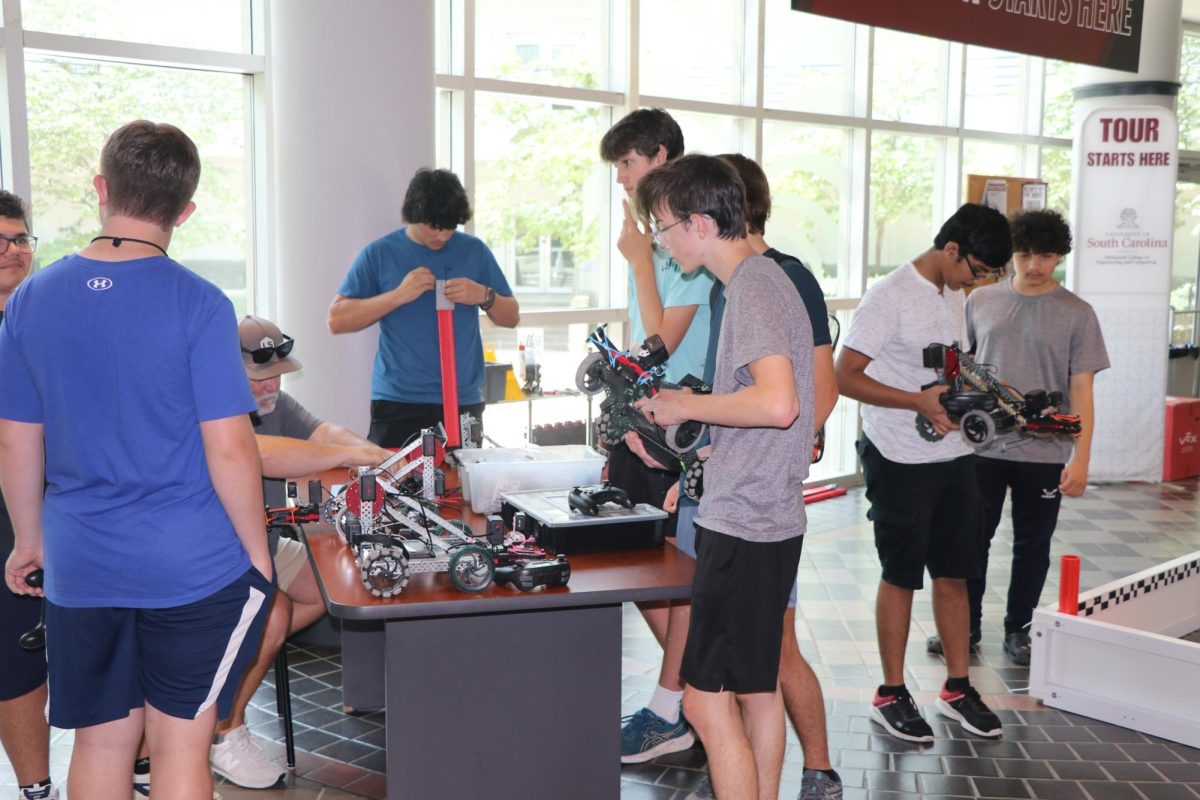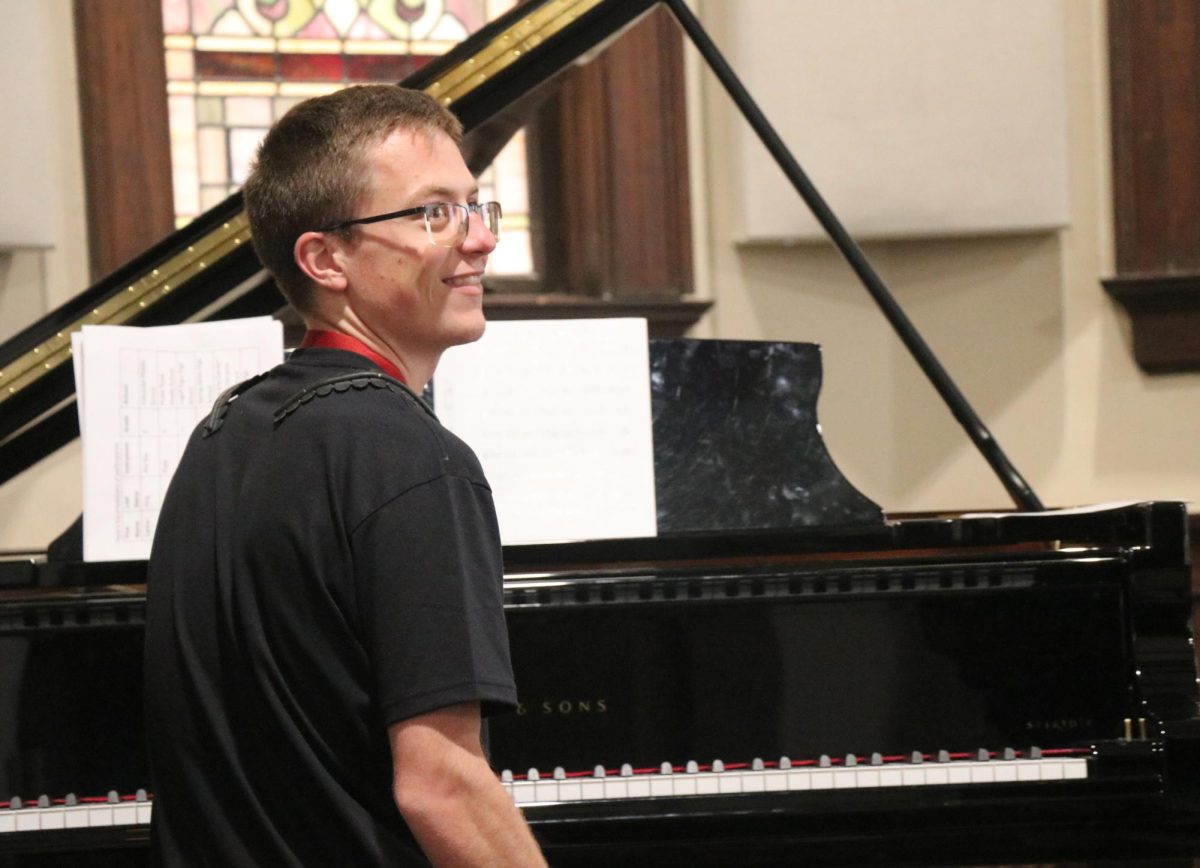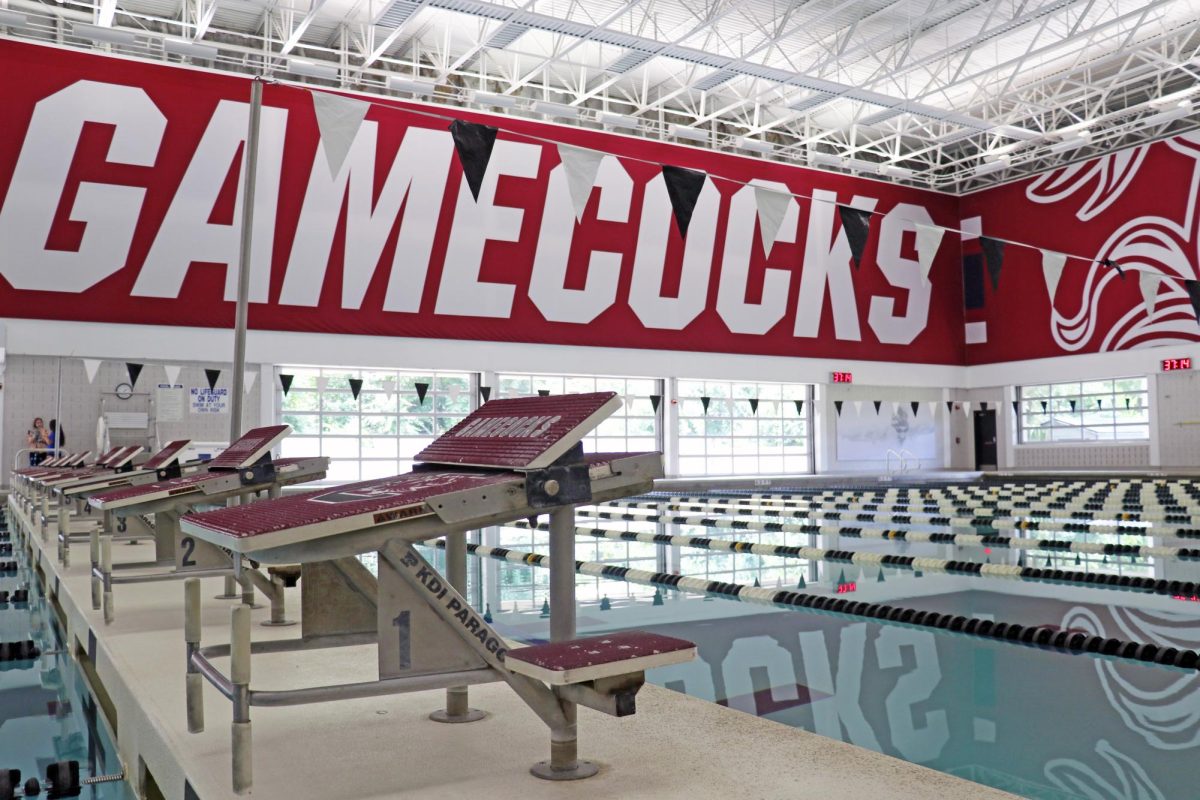Nils Wich-Glasen made a splash at the University of South Carolina as a 200-yard swimming record holder. He went on to swim professionally and coached alongside Olympians after his athletic career as a Gamecock. But this summer he’s back at his alma mater to help lead 21 athletes ages 10 to 18 at the university’s annual swim camp.
“I was a professional swimmer…I did a lot of clinics as well,” Wich-Glasen, from Germany, said. “And I think I’m just kind of trying to share some of my knowledge that I accumulated over the years from very good swimmers, myself.”
The camp is held for two weeks in June at the Carolina Natatorium. It focuses on fundamental swim techniques, such as stroke efficiency, utilizing filming tools for individualized feedback and corrections.
On the afternoon of June 18, coaches could be seen pulling aside select swimmers for one-on-one discussions about movements recorded on film. An underwater camera was used to capture the athletes’ motions, and then the video was displayed and critiqued on screens near the Olympic-sized pool.
All participants of the camp had the opportunity to review film.
Jason Calanog is the men’s associate head swim coach at the University of South Carolina. As the camp director, he adapts the training to the swimmers’ skills, regardless of their competitive level.
“We keep this camp very technique based. It’s the very simplistic,” Calanog said. “So, it could be anyone; from learning how to swim to actually having world champions here.”
Wich-Glasen, who was a USC All-American from 2015 to 2018, added that coaches at the camp emphasize the importance of basic skills, something he said people often “go past” and never work on again.
Athletes have the option to stay on campus or commute daily to the camp. Overnight campers share the residence with those of others sports.
“I think there’s a little bit of mingling going on in between the sessions, and they learn from each other and have a great time,” Wich-Glasen said.
This is also a chance for swimmers from all over to experience the atmosphere of the program at USC, according to Calanog.
“For me, the importance of this camp is to build it so that we can give back to Columbia, South Carolina, to USC, and to give to the kids,” Calanog said. “I think it’s important because swimming is the only skill and sport that you need to do, that you need to learn in life.”



![Over each week-long camp, of which there are two sessions being offered this summer, swimmers get technique-based training on all four strokes. The camp is open to 10-18-year-old swimmers of all skill levels. “We keep this camp very technique based, it’s very simplistic,” Camp Director Jason Calanog puts it. “[The camp] could be for anyone from learning how to swim to actually having World Champions here… we adapt to everyone's skill level.”](https://schopressonline.org/wp-content/uploads/2025/06/Slideshow-3-1200x800.jpg)


